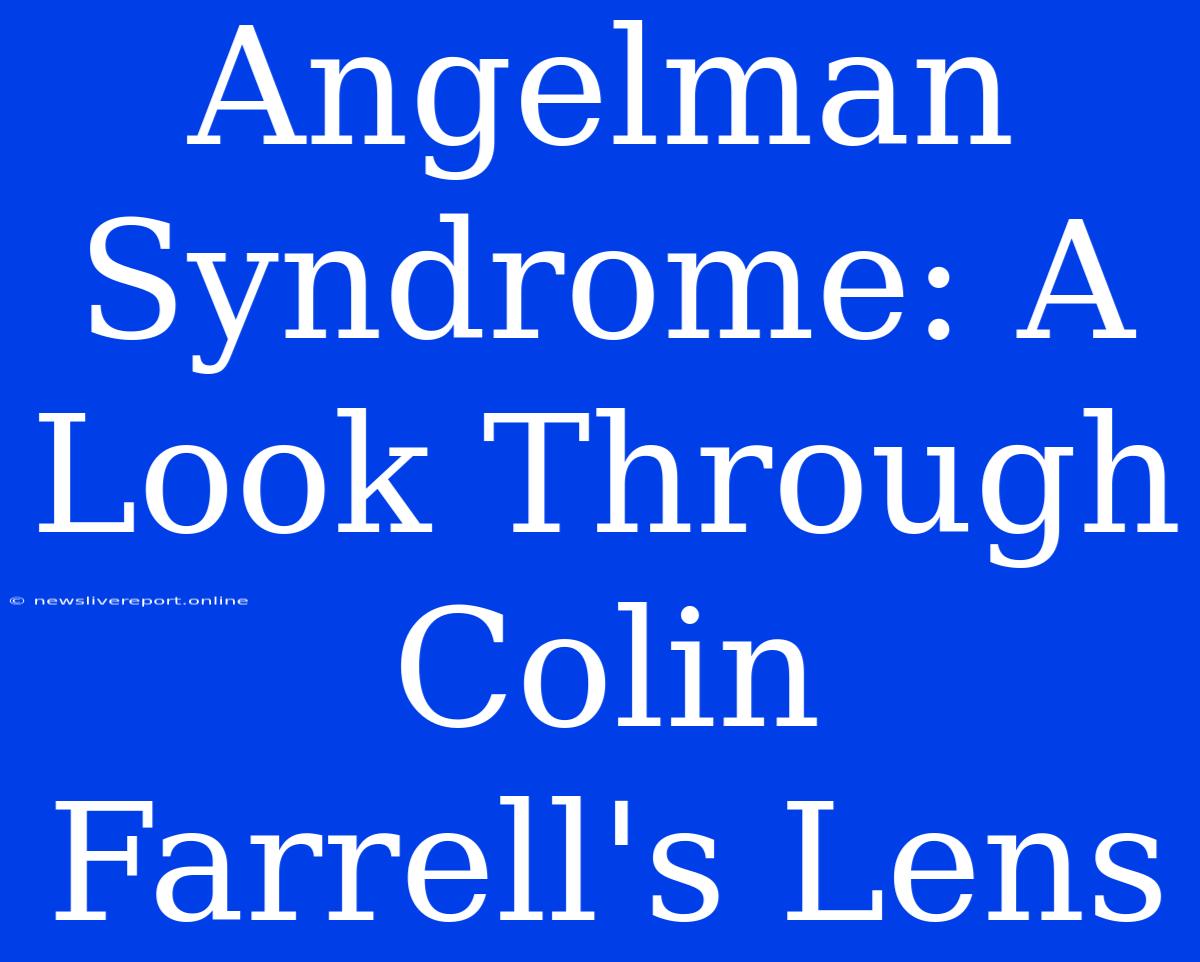Angelman Syndrome: A Look Through Colin Farrell's Lens
Colin Farrell's recent interview about his son, James, living with Angelman Syndrome, has brought the rare genetic disorder into the spotlight. This heartfelt and candid conversation has not only shed light on the challenges and triumphs of raising a child with Angelman Syndrome but also sparked a wave of awareness and understanding.
What is Angelman Syndrome?
Angelman Syndrome is a complex neuro-genetic disorder that affects the nervous system, causing developmental delays, intellectual disabilities, and various physical characteristics. The disorder is caused by a deletion or mutation on chromosome 15, impacting the expression of a gene crucial for brain development.
Symptoms and Challenges:
Individuals with Angelman Syndrome often exhibit the following characteristics:
- Developmental delays: They might have challenges with walking, talking, and learning new skills.
- Intellectual disabilities: They may have varying degrees of cognitive impairment, impacting learning and communication.
- Characteristic features: They might have a happy demeanor, a distinctive gait, frequent smiling and laughter, and an easily excitable personality.
- Sleep disturbances: They may have trouble sleeping soundly and experience frequent awakenings.
- Seizures: Some individuals might experience seizures, which can vary in frequency and severity.
Living with Angelman Syndrome presents its own unique set of challenges for both individuals and their families. The constant need for support, the uncertainty of future development, and the potential for co-occurring conditions require immense resilience and adaptation.
Colin Farrell's Story: A Beacon of Hope
Colin Farrell's openness about his son James's experience with Angelman Syndrome is a testament to his love and dedication. He has shared his journey with honesty and vulnerability, highlighting the beautiful aspects of his son's life and the joy they find in their unique bond.
Farrell's story serves as a powerful reminder that children with disabilities deserve to be seen, celebrated, and supported. His willingness to use his platform to raise awareness about Angelman Syndrome can inspire others to learn more, offer kindness, and create a more inclusive world.
Looking Forward: A Future of Inclusion and Understanding
With increased awareness and understanding of Angelman Syndrome, we can collectively work towards building a future where individuals with the disorder receive the necessary support and resources to thrive. Through research, advocacy, and community building, we can empower individuals with Angelman Syndrome to lead fulfilling and meaningful lives.
Resources:
- The Angelman Syndrome Foundation: https://www.angelman.org/
- Angelman Syndrome UK: https://www.angelman.org.uk/
Final Thoughts:
Colin Farrell's story is a powerful reminder that love and acceptance are the foundations of a truly inclusive society. By understanding and supporting individuals with Angelman Syndrome, we can create a world where everyone has the opportunity to reach their full potential.

